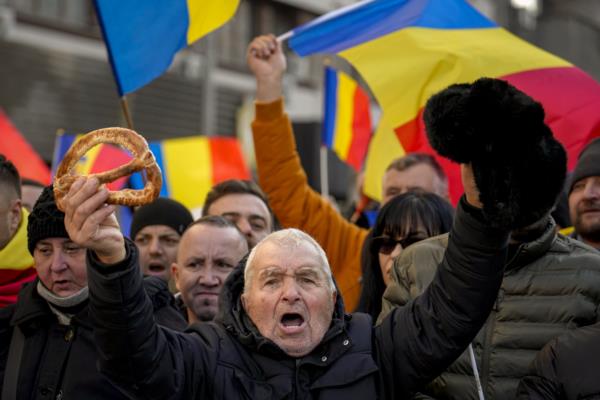
Over the weekend, tens of thousands of demonstrators gathered in Bucharest, Romania, to protest against the annulment of the presidential election by the Constitutional Court. The court's decision came after an outsider candidate, Calin Georgescu, unexpectedly emerged as the frontrunner in the race.
The protesters, waving Romania's national flags and holding placards with messages advocating for free and fair elections, demanded the resumption of the presidential race from the second round. The annulment of the election just two days before the scheduled runoff on December 8th sparked outrage and accusations of electoral violations and foreign interference.
The leader of the far-right Alliance for the Unity of Romanians, George Simion, denounced the court's decision as a 'coup d'état' and called for a return to democracy through the continuation of the electoral process. The canceled election has thrown Romania into turmoil, with new dates set for a rerun of the vote on May 4th, and a potential runoff on May 18th if no candidate secures a majority.











Calin Georgescu, the controversial candidate at the center of the annulled election, has challenged the court's ruling and filed a complaint with the European Court of Human Rights. The decision to cancel the election cited the illegal use of digital technologies and undeclared sources of funding, with Georgescu's zero campaign spending raising suspicions.
Georgescu's unexpected success in the initial round of voting was attributed to his significant following on TikTok, with experts questioning the authenticity of his online support. Allegations of preferential treatment by TikTok and concerns over foreign interference have further fueled the controversy surrounding the annulled election.
The protests in Bucharest reflect the deep-seated concerns among Romanian citizens regarding the integrity of the electoral process and the need for transparent and democratic elections. The ongoing political turmoil in Romania underscores the importance of upholding democratic principles and ensuring the legitimacy of the electoral system.







